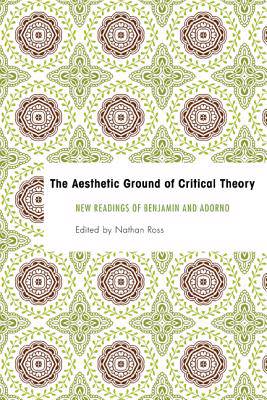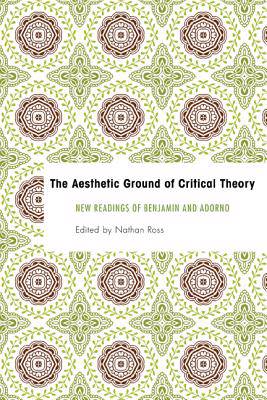
- Afhalen na 1 uur in een winkel met voorraad
- Gratis thuislevering in België vanaf € 30
- Ruim aanbod met 7 miljoen producten
- Afhalen na 1 uur in een winkel met voorraad
- Gratis thuislevering in België vanaf € 30
- Ruim aanbod met 7 miljoen producten
Zoeken
The Aesthetic Ground of Critical Theory
New Readings of Benjamin and Adorno
€ 298,45
+ 596 punten
Omschrijving
Walter Benjamin and Theodor W. Adorno are considered today to be the two most significant early theorists in founding critical theory. In their works and correspondence, both thinkers turn to art and the aesthetic as a vital way for understanding modern society and developing philosophical methods. This volume of original essays seeks to understand how they influenced each other and disagreed with each other on fundamental questions about art and the aesthetic. The books deals with a variety of key philosophical questions, such as:
Ultimately the book presents a systematic argument for the foundational significance of the aesthetic in the development of the early critical theory movement.
- How does art involve distinctive modes of experience?
- What is the political significance of modern art?
- What does aesthetic experience teach us about the limitations of conceptual thought?
- How is aesthetic experience implicated in the very medium of thought, language?
Ultimately the book presents a systematic argument for the foundational significance of the aesthetic in the development of the early critical theory movement.
Specificaties
Betrokkenen
- Uitgeverij:
Inhoud
- Aantal bladzijden:
- 232
- Taal:
- Engels
- Reeks:
Eigenschappen
- Productcode (EAN):
- 9781783482924
- Verschijningsdatum:
- 27/08/2015
- Uitvoering:
- Hardcover
- Formaat:
- Genaaid
- Afmetingen:
- 152 mm x 231 mm
- Gewicht:
- 476 g

Alleen bij Standaard Boekhandel
+ 596 punten op je klantenkaart van Standaard Boekhandel
Beoordelingen
We publiceren alleen reviews die voldoen aan de voorwaarden voor reviews. Bekijk onze voorwaarden voor reviews.










